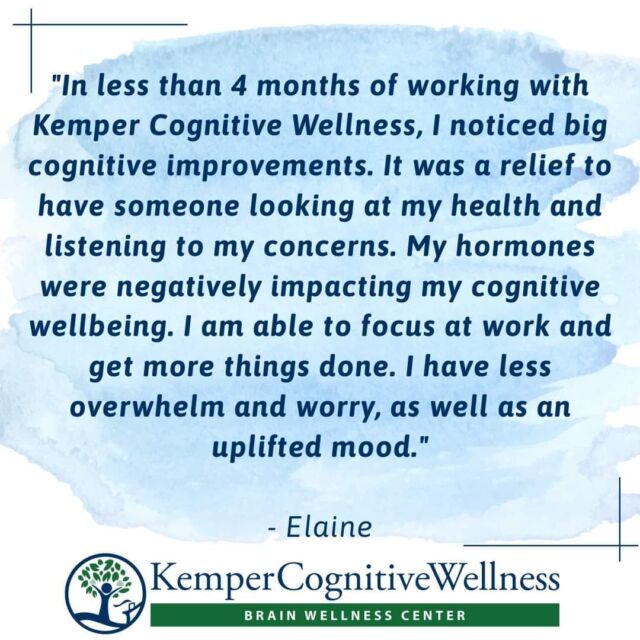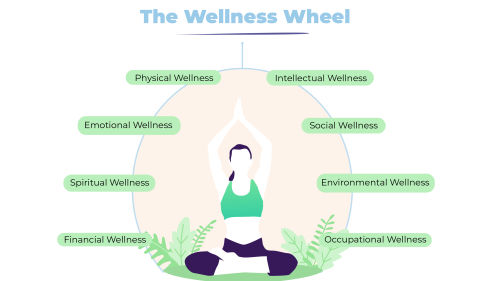Tele Parenting Resources for Modern Families
The modern family landscape is ever-evolving, with more parents working remotely or geographically separated from their children. This new normal presents unique challenges, but also exciting opportunities for connection and support. This article provides a detailed look at Tele-Parenting Resources available to families in the United States, highlighting tools and strategies to maintain strong family bonds despite physical distance.
Key Takeaways:
- This article provides an overview of various Tele-Parenting Resources designed to aid families in maintaining strong relationships despite geographical separation or busy work schedules.
- We will explore specific tools and platforms for virtual interaction, educational support, and effective communication strategies.
- The article emphasizes the importance of prioritizing quality time and open communication in tele-parenting.
- We’ll address challenges and offer solutions for successful remote parenting.
Tele-Parenting Resources for Virtual Connection
Maintaining regular contact is crucial for a child’s emotional well-being. Luckily, several platforms facilitate virtual connection. Video calls via Zoom, Skype, or FaceTime allow for face-to-face interaction, fostering a sense of closeness. Consider scheduled video calls for bedtime stories, family game nights, or simply catching up on the day’s events. These routine interactions are vital in maintaining a sense of normalcy and connection. Furthermore, many social media platforms allow families to share photos, videos, and quick updates throughout the day, maintaining a sense of shared experience even when apart. The key is to find a method that works best for your family and stick with it, creating consistent points of contact.
Tele-Parenting Resources for Educational Support
Supporting your child’s education remotely requires access to relevant resources and proactive engagement. Online learning platforms like Khan Academy, Coursera, and educational YouTube channels provide access to a vast library of educational content, supplementing classroom learning or filling gaps in knowledge. Many schools offer virtual learning platforms specifically designed for their students, facilitating interaction
Nurturing Positive Cognitive Wellness for Optimal Living

Nurturing Positive Cognitive Wellness for Optimal Living
Cognitive wellness is an integral aspect of overall well-being, encompassing mental clarity, emotional resilience, and positive thinking. Adopting strategies to nurture positive cognitive wellness contributes not only to mental health but also to a fulfilling and balanced life.
Understanding Positive Cognitive Wellness
Positive cognitive wellness goes beyond the absence of mental illness; it focuses on fostering a positive mindset and emotional well-being. It involves cultivating habits and adopting practices that enhance cognitive functions, such as memory, problem-solving, and decision-making, while promoting a positive outlook on life.
Mindfulness and Present Awareness
One key strategy for nurturing positive cognitive wellness is practicing mindfulness. Mindfulness involves being fully present in the moment, acknowledging thoughts and feelings without judgment. Regular mindfulness exercises, such as meditation or deep breathing, promote mental clarity, reduce stress, and enhance overall cognitive function.
Cultivating Positive Thinking Patterns
Positive cognitive wellness is closely tied to cultivating positive thinking patterns. This involves consciously challenging negative thoughts and replacing them with optimistic and constructive ones. By fostering a positive mindset, individuals can approach challenges with resilience and view setbacks as opportunities for growth.
Embracing a Healthy Lifestyle
Physical health and cognitive wellness are interconnected. Adopting a healthy lifestyle, including regular exercise, balanced nutrition, and sufficient sleep, positively impacts cognitive function. Physical activity, in particular, has been linked to improved mood, enhanced memory, and reduced cognitive decline.
Social Connections and Emotional Support
Human connection plays a vital role in positive cognitive wellness. Cultivating meaningful relationships and maintaining a supportive social network contribute to emotional well-being. Sharing thoughts and experiences with others provides a sense of connection and fosters a positive mental state.
Continuous Learning and Mental Stimulation
Engaging in continuous learning and mental stimulation is crucial for positive cognitive wellness. Whether it’s pursuing hobbies, learning new
Inner Mental Wellness: Nurturing a Healthy Mind
Inner Mental Wellness: Nurturing a Healthy Mind
Inner mental wellness is a holistic approach to well-being that focuses on nurturing a healthy mind from within. Explore the importance of inner mental wellness and practical strategies to foster a positive mental state.
Understanding Inner Mental Wellness
Inner mental wellness goes beyond the absence of mental illness; it embraces a positive and proactive approach to mental health. It involves cultivating a state of well-being, resilience, and a positive mindset. Understanding inner mental wellness is recognizing the interconnectedness of thoughts, emotions, and overall mental health.
Cultivating Positive Mindset and Self-Talk
Cultivating a positive mindset and practicing constructive self-talk are fundamental to inner mental wellness. Positive thoughts contribute to a more optimistic outlook on life. By challenging negative self-talk and replacing it with affirming thoughts, individuals can enhance their mental well-being and build a resilient mindset.
Embracing Mindfulness and Present Moment Awareness
Mindfulness is a powerful tool for inner mental wellness. It involves being fully present in the current moment, without judgment. Embracing mindfulness practices, such as meditation or mindful breathing, can reduce stress, increase self-awareness, and foster a sense of inner peace.
Establishing Healthy Daily Routines
Healthy daily routines play a crucial role in supporting inner mental wellness. Prioritizing activities that bring joy, relaxation, and fulfillment contributes to overall well-being. This may include regular exercise, sufficient sleep, and engaging in hobbies or activities that promote a positive mental state.
Building Resilience in the Face of Challenges
Inner mental wellness involves building resilience to navigate life’s challenges. Resilience is the ability to bounce back from adversity and maintain mental strength. Developing resilience includes learning from setbacks, adapting to change, and maintaining a sense of perspective during difficult times.
Nurturing Social Connections and Support
Social connections are vital for inner mental wellness. Building and nurturing
Thriving at Work: Essential Workplace Wellness Education

Unlocking Workplace Well-being: The Impact of Wellness Education
Creating a thriving work environment involves more than just productivity; it requires a focus on employee well-being. In this guide, we’ll explore the significance of workplace wellness education and its transformative impact on fostering a healthier, more engaged workforce.
Understanding Workplace Wellness Education: A Holistic Approach
Workplace wellness education is a comprehensive strategy that goes beyond traditional health programs. It embraces a holistic approach, addressing physical, mental, and emotional well-being. By providing employees with the knowledge and tools to prioritize their health, organizations create a foundation for a thriving workplace culture.
Physical Wellness Initiatives: Nurturing Healthier Habits
Physical wellness is a key component of workplace well-being. Wellness education can introduce initiatives such as fitness programs, ergonomic workspace setups, and health screenings. Encouraging regular exercise, promoting proper nutrition, and addressing ergonomics contribute to a physically healthy and energized workforce.
Mental Health Awareness: Breaking the Stigma
Mental health is a critical aspect of workplace wellness that often goes overlooked. Wellness education initiatives can break the stigma surrounding mental health issues, fostering an environment where employees feel comfortable seeking support. By promoting awareness and understanding, organizations contribute to a mentally resilient workforce.
Stress Management Strategies: Empowering Employees
Workplace stress is a common challenge, impacting both individuals and organizational productivity. Wellness education equips employees with stress management strategies, such as mindfulness techniques, time management skills, and resilience-building practices. Empowered employees can better navigate stressors and maintain a healthier work-life balance.
Balanced Nutrition and Healthy Eating Habits: Fueling Performance
Nutrition plays a vital role in overall well-being and workplace performance. Wellness education programs can emphasize the importance of balanced nutrition, offer healthy eating resources, and promote mindful eating habits. When employees fuel their bodies with nutritious food, they experience sustained energy and improved cognitive function.
Promoting Work-Life
Equilibrium Within: Tips for Emotional Balance and Well-being

Introduction
Achieving emotional balance is essential for overall well-being, contributing to a healthier and more fulfilling life. In this article, we’ll explore practical tips to cultivate emotional balance and enhance your mental and emotional resilience.
Understanding Emotional Balance
Emotional balance involves recognizing and managing your emotions in a way that allows you to respond to situations with clarity and composure. It’s not about suppressing emotions but rather developing a healthy relationship with them. Understanding the spectrum of emotions and their impact is the first step toward achieving emotional balance.
Mindfulness and Present Moment Awareness
Mindfulness practices, such as meditation and present moment awareness, are powerful tools for fostering emotional balance. These practices help you stay grounded in the present, reducing the influence of past regrets or future anxieties. Regular mindfulness sessions can enhance emotional clarity and reduce reactivity.
Cultivating Self-Awareness
Self-awareness is a cornerstone of emotional balance. Take time to reflect on your thoughts, feelings, and reactions. Understanding your triggers and patterns empowers you to respond thoughtfully rather than react impulsively. Journaling or seeking the support of a therapist can aid in developing self-awareness.
Balancing Work and Personal Life
Achieving emotional balance often involves maintaining a healthy balance between work and personal life. Establish clear boundaries to prevent work-related stress from permeating your personal time. Prioritize self-care and leisure activities to recharge and nourish your emotional well-being.
Building Supportive Relationships
Strong, supportive relationships contribute significantly to emotional balance. Surround yourself with individuals who uplift and understand you. Open communication and meaningful connections create a sense of belonging and provide a crucial support system during challenging times.
Practicing Emotional Regulation Techniques
Emotional regulation techniques are valuable skills for managing intense emotions. Techniques such as deep breathing, progressive muscle relaxation, or visualization can help calm the nervous system and bring about a



